|
Walking into the endzone of FedEx Field of the Washington Football Team made everything feel real—not some fantasy about playing professional football, but the reality of graduating college and entering into a new stage in life. In the middle of May, I graduated from The Catholic University of America at FedEx Field. It was an experience filled with much joy, but also some uncertainty. The joy and happiness were palpable throughout the stadium. It was rewarding seeing four long, hard years of work and late nights come to fruition. I felt a happy sense of relief that we had made it through the chaos and craziness of the past three semesters amidst the pandemic. It was exciting getting to celebrate with our friends and family—a truly special ceremony. Later that day, I began to feel some uncertainty mixed in with my joy. Friends were moving back home or across the country. Some friends were starting new jobs while others were going to graduate school. Some friends were younger and would still be at school another year while other friends had full-time jobs. There was a lot still up in the air. Over the past couple of weeks since graduation, I have reflected on that uncertainty and realized that it relates to a lot going on today. There’s uncertainty in starting a new job, in moving, or any type of new beginning. There’s uncertainty in returning to work in person maybe for the first time in a long time. There’s even uncertainty about traveling and going on vacations with differing restrictions. As I reflected on the uncertainty I felt from graduating college, I was comforted by one simple fact: the same Jesus who was present and working in my life before will be present throughout the uncertainty. During the Nicene Creed, we say, “I believe in one, holy, catholic and apostolic Church.” In these four marks of the Church, catholic is referring to the universality of the Church. This is what I found comfort in. Even though I wouldn’t be going to Mass at Catholic University anymore, Jesus would be present at Mass at my new parish community. Even though I wouldn’t have the ability to go to a chapel as frequently, Jesus would still hear my prayers throughout my workday. I found this realization comforting and encouraging – I knew Jesus would be present throughout the uncertainty and the change. I began to think of ways that I could actively embrace the uncertainty by welcoming Jesus into the small day-to-day actions that I knew would come about because of the changes. I set two goals for this uncertain time:
0 Comments
“In the name of the Father, the Son and the Holy Spirit.” This is how I begin all of my prayers; and it comes from a long tradition in Christianity. As Catholics, we usually accompany these words by making the Sign of the Cross with our hand. Why is this so important to our faith and to me personally? To begin, I suggest revisiting and praying the Nicene Creed as it is proclaimed at every Catholic Mass. This is our profession of faith. The Holy Trinity – three persons in one – is a mystery we mere mortals can scarcely understand, but it explains our identity as children of God. We are taught from the Old Testament that God the Father is the Creator, and He sustains all of the world. In the New Testament we are instructed that God the Son is our Savior, Jesus Christ – both divine and human in nature and whose behavior we strive to model. At Pentecost, as told in the Acts of the Apostles in the New Testament, we are shown that the Holy Spirit is imparted to each of us as the presence of God in us who gives us wisdom and boldness to act as we are taught by Jesus. The unity of these three divine beings in one God is a profound gift I believe in complete faith, and it helps me understand who I am in His Kingdom. I am a child of the Father who loved me into being together with my earthly mom and dad, I am redeemed by the body and blood poured out by Jesus His Son for all my failings, and I am aided constantly by the Holy Spirit to live and profess the Christian life in joy and exuberance! I like to think of myself as being a flesh and bone human with supernatural assistance (as long as I cooperate with the will of God)! That is a pretty amazing disposition to live out of. We read in the Old Testament’s books of the prophets that God promised a Messiah to save His people, and then in Matthew 1:2-16 the genealogy of Jesus is recorded and spiritually comes to include each of us, who through our baptism become sons and daughters of God. This is an earthly and divine bond like no other in all of creation. There is so much more to us human beings than our earthly bodies and this temporary space we inhabit. We are walking, talking, living, breathing messengers of God the Almighty, commissioned to share love and mercy to every other living being around us. We are flesh and bone, but we are also spirit and intellect. When in right relationship with our Lord, we are the dwelling place for God to move and work in and through us. Understanding our identity and praying for guidance to live it out in what we do and say is imperative to being a member of the Kingdom of Heaven. This knowledge and the grace and virtues that flow from accepting our mission gives us the power to bring life and healing and hope and joy to a hurting, confused, and broken world. So, if you are ready to accept the mission, be prepared to be filled to overflowing with the Holy Spirit and be equipped with all that is necessary to be a present day apostle! Several years ago, one of our young sons made a simple but beautiful bookmark for my husband as a gift. It was brightly colored and had the words: WORK FOR GOD! down the middle. This summarizes exactly what we are called to do and continues to be a great reminder as it sits in my husband’s Bible. The Holy Trinity is the foundation of all our Christian beliefs and it gives me great comfort knowing who I come from and who I belong to for time and eternity, even when I do not fully comprehend it. We can sing from the rooftops: “Holy Father, Holy Son, Holy Spirit, three we name Thee; while in essence only one, undivided God we claim Thee; and adoring bend the knee, while we own the mystery” (Holy God, We Praise Thy Name by Ignace Franz). To learn more about living as a missionary disciple, please click here. In 2020, when the COVID-19 pandemic was beginning in earnest, there were many questions about what would happen in the Catholic Church if people’s lives were upended in such profound ways. In many respects, we may not truly understand the ramifications of a worldwide change in perspective until we can look back at it. That being said, with “the return to normal,” the opening up of parishes, and the re-starting of activities have come questions about what we have learned from this pandemic experience. I think many of us re-learned that community and connection are important. The question that seems to be challenging folks is: Now that we can start to plan to meet in person, what should our parish activities look like? For the past two years, I have had the pleasure of doing Master’s work in Church Management at Villanova University. Most of my studies occurred during this pandemic and offered a unique perspective of what effective parishes and communities have done to respond to a sudden shift in the assumptions of what the Church in the United States looks and acts like. Most of the parishes that were able to weather the storm well were able to do so because they were intentional about what community is and should be. They did not assume that a parish had to be only the functions that happen within a city block or a singular location, but rather can have an online presence and remotely meet people where they are. I think of my friends and colleagues with young families or who have long commutes and the complications that our parishes can impose on people who would like to be involved, but cannot be due to the lives that they lead. Are we as church leaders imposing certain restrictions for the members of the parish to be able to build a community? As active Catholics, our job is to share the joy of the Gospel that we hopefully have experienced with others. The pandemic has proven that there is a desire for community and for Christ in people’s lives despite barriers. However, we as Catholics also need to acknowledge that if we “are now just going back to normal,” we are also going back to the normal of an older and smaller church. We need to see the pandemic not as a temporary event, but rather the opportunity that God has given us to think creatively and reflectively over the past year about what it means to be Catholic in the United States. Similarly, what is our hope for the future of the Catholic Church in the United States? If we do not think about these things, we risk becoming a closed community for only those who are already active members. There were many challenges during the pandemic, but there were opportunities to grow and learn for our Church as well. My hope is that we take the lessons that we have learned, both positive and negative, about what it means to be in a community and to be community leaders and apply those findings in healthy, creative ways going forward. For more resources on navigating COVID-19 as a community, please click here. 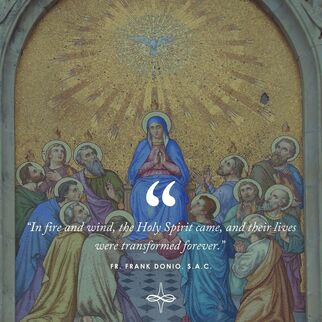 We are in the time of the Upper Room, the Cenacle. The days between the Ascension of the Lord and Pentecost are liturgically the time when the Blessed Virgin Mary, the Apostles, and the disciples were together in prayer, awaiting the coming of the Holy Spirit. They did not really know what to expect. In fire and wind, the Holy Spirit came, and their lives were transformed forever. The world is also transformed and is transforming. The mission continues in the name of Jesus Christ! We are sent as apostles, as missionary disciples, out into the world. Hiding in a room, in our homes, even in a church is not our call. Instead, we go forth, going where the Holy Spirit moves us to go. We can do amazing things in the name of Jesus Christ. There is no need to wait until someone invites us. No, if we are baptized, and especially if we are confirmed, then we can go forth! We need to recognize, though, that we do not send ourselves. We are sent by Christ, in and through his Church. The community of faith that we call Church is where we go forth from and to which we return. The Church teaches us, forms us, heals and nourishes us through the Sacraments, and sends us on mission. The mission is not ours; it is Christ’s. We, as members of Christ’s Faithful, are called to live his mission until he comes again, just as the Apostles were told to do. In all of this, Mary, Queen of Apostles, is with us as our Mother and Queen. Her feast day is the day before Pentecost. She was the perfect disciple of Christ. St. Vincent Pallotti said of her: “We have most holy Mary, after Jesus Christ, the most perfect model of true apostolic zeal, and of perfect love” (OOCC I, 7). The Decree on the Apostolate of the Laity of the Second Vatican Council echoes this sentiment of Pallotti: “The perfect example of this type of spiritual and apostolic life is the most Blessed Virgin Mary, Queen of Apostles, who while leading the life common to all here on earth, one filled with family concerns and labors, was always intimately united with her Son and in an entirely unique way cooperated in the work of the Savior… All should devoutly venerate her and commend their life and apostolate to her maternal care” (4). Mary, Queen of Apostles, pray for us! May the charity of Christ urge us on! To learn more about Mary, Queen of Apostles, please click here.
It is rare to find a moment of silence in a household with a two-year-old. Last week, unusually, provided many quiet moments as my normally energetic daughter had a high fever and spent the day on the couch or sleeping only while being held. My wife and I took turns silently holding her to help her get much needed rest. Sitting in silence—without a phone or other distraction--was agitating at first. As the time went on, the simple time spent in silence holding a sleeping child became nourishing and awakened in me a hunger for silence that I often spend time avoiding. This past Lent, I co-led an online small group for newly married men in DC. As we reflected on how the life of St. Joseph relates to us as men, we returned almost weekly to the challenge of finding silence amid phones and families. St. Joseph was not a character that most of us had taken seriously before being married or becoming a father. Yet in marriage and fatherhood, Joseph is the silent role model we need. Someone who understands us and who inspires us. St. Joseph was not a loud or flashy saint. In the children’s books of saints we have for our daughter, the life of silent St. Joseph is hardly mentioned. How can he compete with traveling missionaries, miracle workers, religious founders, and the stories of martyrs losing their heads, eyes, and more? Though his life was not extroverted or bloody, it was no less meaningful. The life of Joseph was a life of daily martyrdoms and silent missions. Without having to leave his home or his workshop, he set out each day as a missionary to offer his life for Jesus and Mary. This is reassuring to me as a husband and father of a toddler, who has been stuck at home during the last 12 months during the COVID pandemic. It is tempting to think that the only way to be holy is to be on the move or to be noticed, like the many Catholic social media influencers or popular Catholic priests or bishops. St. Joseph reminds us of a quieter, ordinary path to holiness that will earn us no new likes or followers. He shows us a hidden, silent example that we need in the noise of daily life. Joseph’s silence teaches us to rediscover the silent mission work found in our own kitchens and living rooms. The artist and Oblate Brother Mickey McGrath has a beautiful image of “St. Thérèse Doing the Dishes.” In the painting, Thérèse is at the kitchen sink elevating a plate as the priest elevates the Eucharist at the altar. This image makes plain our mission as lay men and women to unite our daily work and sacrifices to the great sacrifice of Jesus on the cross which we commemorate at each Eucharistic celebration. Perhaps this image of St. Thérèse doing dishes stands out today because our dishwasher broke this week and my mission field has been researching dishwasher pumps and motor assemblies and spending extra time in soapy water. The image reminds me that God has called me to this mission, regardless of whether it is my preference or how qualified I feel for the task. Joseph must have felt the same way in the ordinary tasks of his workshop and home. St. Joseph is a role model for how we are called to integrate our lives, finding God in every moment of our day—whether doing dishes, praying the Rosary, updating spreadsheets, or building a table. In the life of Joseph, daily work “is a kind of prayer, a way of finding God, a means of salvation…Joseph gave to his carts and yokes the same care he would have given to a tabernacle, since he understood perfectly that a word done in love goes straight to God” (Michel Gasnier, Joseph the Silent, 29). Pope Francis reminds us that, “working persons, whatever their job may be, are cooperating with God himself, and in some way become creators of the world around us” (Patris Corde, 6). St. Joseph is well known for not having a single word recorded in Scripture, but we cannot confuse his silence with a lack of mission. Joseph was a silent missionary who invites us in this Year of St. Joseph to join him in the quiet work. The silent mission of holding a sick child who has fallen asleep, of holding our tongue from an uncharitable word with a family member or colleague, of doing the dishes, or of going about our work with love. Silently. Without recognition. Like St. Joseph. “Why are you standing there?” The angels who spoke these words to the astounded disciples now turn to ask us this question today. Perhaps, like the disciples after the Ascension, we too have been stuck looking up at the sky, wondering where Christ is. Our answers to the angels’ question are probably very legitimate. “I am standing here because of the pandemic, because I lost my job, because of isolation, because of sickness, because of racial discord, because of people’s differences, because I don’t know what else to do.” In this passage from today’s Gospel reading, which is the same as this upcoming Sunday’s, I remind myself that at least the disciples were looking up. They at least had their eyes fixed on Christ. That, in and of itself, is a good thing. But what God wants to convey through the angels after Jesus’ Ascension is that just seeing Christ or believing in him is not enough. A relationship with Christ results not in paralysis, but in action. “You will be my witnesses,” Jesus tells his disciples moments before he ascends to the Father. And it is by living out our relationship with Christ as witnesses that the world comes to know him and that our faith comes alive. Witnessing to our faith and accompanying others on their faith journeys shake us out of our paralysis and help us overcome our fear. Jesus is not conveying that hardship, suffering, or unrest will be absent from our lives, but that these no longer have the power to paralyze and trap us. His Resurrection has changed the narrative. And as the Easter season comes to a close, Jesus is calling us not only to believe in him, but to act— to have our lives transformed by the knowledge of the Resurrection and to live boldly and faithfully as a result. At this point, however, the disciples are still focused on earthly things. Just before Jesus’ Ascension, they ask him, “Lord, are you at this time going to restore the kingdom to Israel?” Many of us have similar questions. “Lord, at this time will I get my job promotion? As this time, will my addiction be healed? At this time, will the pandemic end? At this time, will our family be reconciled?” These are valid, important questions of the human heart. Questions that long for answers, for resolutions, for miracles. Jesus’ response seems mystifying and even unrelated: “You will receive power when the Holy Spirit comes upon you, and you will be my witnesses.” While the disciples are still caught focusing on the restoration of Israel and victory over their oppressors, Christ promises more. So much more, in fact, that they are unable to grasp it without the gift of the Holy Spirit, whose coming we celebrate on the Feast of Pentecost on May 23rd. It is why Jesus chose to ascend at this time. He had spent 40 days teaching and opening the Scriptures to his disciples after his Resurrection, but they still could only fathom human goals and objectives. Jesus knows his ministry has come to an end and that a new chapter of the Church will begin with the promised Advocate, the Holy Spirit. After he answers them, Jesus compels his disciples to look up to the heavens as he begins to ascend to the Father. He is physically showing them the needed disposition of their hearts and minds in order to receive the Holy Spirit: they should be considering heavenly things and a heavenly goal. But then, moments later, they are startled to hear: “Why are you standing there looking at the sky?” It can be tempting at times to separate ourselves from the reality of the here and now by over-spiritualizing things or being preoccupied with the past or future. The disciples are left looking up (very understandably), but this looking up and clinging to Jesus in his physical form distracts them from the action to which he has called and chosen them: to be his witnesses to the ends of the earth. This balance between living in the world but not of it can be difficult to grasp and practice. It’s important first to consider where you find yourself today. Are you asking the Lord to restore the kingdom to Israel? Are you standing looking at the sky? Many of us are somewhere in between. Below are 6 practices that help ground me in Christ and deepen my ability to witness to his love:
By considering these practices, it is my hope that, renewed by the Holy Spirit at Pentecost, we will enter into Ordinary Time ready to be Christ’s witnesses to the ends of the earth. Christ calls us each to so much more than simply remain standing. For more resources on living as missionary disciples, please click here. Yesterday the Church celebrated the feast day of St. Damien of Molokai. As the COVID-19 pandemic continues, I reflected on the life of Fr. Damien and how striking of an example his life can be for us today. Fr. Damien was a priest in the second half of the 19th century known for his work with the leper colony on the Kalaupapa Peninsula in Hawaii. Fr. Damien initially went to the leper colony to provide support for the residents. He helped balance and stabilize the basic necessities of life for the people who lived in the colony. Even though his ministry at the colony was only supposed to be temporary, Fr. Damien discerned God’s will and recognized the need of the residents and stayed there for the rest of his life, walking with everyone in the colony. He eventually died in 1889 from leprosy he contracted from his work there. As an aspiring Catholic doctor and scientist, I have looked up to Fr. Damien. The funny thing is that Fr. Damien was neither a medical doctor nor a scientist! He was a priest who discerned God’s call to care for the physical health and well-being of the people in the leper colony. Two elements of Fr. Damien’s life have been particularly impactful for me that I think are especially relevant amid the COVID-19 pandemic. Firstly, I am inspired by Fr. Damien’s discernment of God’s will in caring for the health and well-being of the residents, and his courage to follow God’s will. I think it is very easy to see the path of least resistance and assume that it is the “right” path. But Fr. Damien teaches us a different lesson. He knew it would have been easier to stay at the leper colony temporarily, but instead of placing his will first, Fr. Damien placed God’s will first. Even though this meant continuing an incredibly challenging ministry that he was not particularly qualified for, Fr. Damien followed God’s will. He opened his heart to be filled with grace and courage to continue his ministry. Secondly, Fr. Damien can serve as a role model for us today in recognizing the interconnected nature of physical health and spiritual health. This school year, I have found myself quarantining and isolating on multiple occasions. We weren’t allowed to walk outside or anything in isolation. I found it hard to get the energy to watch online Mass or much less do anything when physically I couldn’t go anywhere. In his ministry on the leper colony, Fr. Damien recognized that part of caring for one’s spiritual health included caring for their physical health. He devoted himself to holistically improving the living conditions of those in the leper colony to the greatest extent that he could. He lived a life of service, always adapting to the greatest need of the people he was with. I’m neither a doctor nor a scientist yet, and most of us will never be. So, I find myself thinking, how can I connect the lessons from Fr. Damien’s life to my day-to-day life? One way I think we can do that is by discerning God’s will for us, even in small, routine actions. In our workplaces, schools, parishes, and other places we frequent, we can discern God’s will for using our gifts to benefit the community. These might not be big, grand ways like Fr. Damien, but lots of small actions over time that build up to have a great effect! And, just like Fr. Damien, we can pray for the grace and courage to live out God’s will throughout our lives. A second way we can live out Fr. Damien’s lessons is by helping to care for our family, friends, co-workers, neighbors, etc. in their physical health. If we know someone is having to quarantine, we can drop off food outside to them. As the weather is getting nicer, we can go on socially distanced walks outdoors or other outdoor activities. While we aren’t called to a leper colony in Hawaii like Fr. Damien, we can still connect our physical and spiritual health right where we are and learn from Fr. Damien as a role model for us today. St. Damien of Molokai, pray for us!
As the mother of a young toddler, I’ve found that life is moving pretty quickly. One moment I’m running after him so he doesn’t grab the dog’s water bowl, and the next, I’m reading his little children’s Bible for the third time in 5 minutes. I’m finding that my toddler is learning so much from his environment. Every day, he can say new words or hum or sing or dance. When I hear him say, “Mama and Vinny,” I just stop and think about Mary.
I love to imagine her as Jesus’ mother: patient and loving, giving hugs, teaching him and walking among flowers. I picture the two of them laughing and playing in the sunshine filled with joy. But I also imagine her with Jesus throughout his life. I start by thinking of Jesus as a toddler--maybe when they were still in Egypt. He likely picked up sand and tried to eat it like my little one would or looked at a camel or water and began to say his first words. Then, I can imagine Mary and Joseph both searching for Jesus while he was not where they thought he should be, but instead in the Temple with teachers showing how much he knew about Scripture. She would be proud of him and his knowledge, maybe with a pang of understanding of his purpose on earth. Then I imagine later on in his first miracle at the wedding at Cana, when she really knew it was time for Jesus to begin his ministry. She supported her son, but also knew it was time to begin God’s work. Meditating on different Scripture passages and moments in the life of Christ can deepen our relationship not only with him, but with the many powerful witnesses to the faith like Our Blessed Mother. Reflecting on moments with my toddler and my own motherhood has strengthened my relationship with Mary over this past year. In this month of May, let us turn to Christ’s Mother and celebrate her motherhood to all of us. Mense Maio, an encyclical by Pope Paul VI which came out on April 29th, 1965 discusses prayer during May for the preservation of peace and the powerful intercession of our Blessed Mother in a variety of ways. As I was reading, I liked how Pope Paul VI mentioned different areas that need our prayers. In the twelfth section of the document called “Plea for Mary’s Help,” he writes, “she graciously lend(s) an ear to the devout pleas of those all over the world who beg her for peace.” As we begin the Marian month of May, let us think about the people in our lives, maybe those marginalized or neglected who are in desperate need for our prayers and petitions. Let us turn to Our Blessed Mother and beg her for peace in our lives and throughout the world. To read more blog posts about the Blessed Virgin Mary, please click here. I felt for my husband. He had just hung up the phone with a family member, letting him know that we would not be attending a birthday party. “That was so uncomfortable,” he said, “I can tell I hurt his feelings.” The party would be fun, but jam-packed with people and a risk for our family that we were not yet ready for in COVID times. I can relate to the discomfort. It had only been a week since a friend declined an invitation to dinner on our patio, citing the very same reasons that we had just offered to our family member: they weren’t ready. Receiving her text, however gracious it was, made me feel like she believed us to be dirty, reckless, and wrong in our choices. It is a situation we find ourselves in time and again: assessing risk and making decisions that bear the weight of our mental and physical health, all the while revealing a supposed worldview and delivering a perceived judgement. At best, these decisions and conversations are the source of relational aches. At worst, they create genuine conflict and damaged friendships where hurt hearts struggle to heal. The rapid sequence of these interactions and the rate at which they seem to be occurring has given me pause. Each time, I worry about the repercussions of choosing not to attend an event at which I would be wearing a mask while no one else is--will my friends feel judged by me? Am I hurting them? How do I balance that with the decisions my husband and I have intentionally made for our family? Then, what do I do with the pain when friends and loved ones choose not to be around me? What do I let that say about who I am, and how they feel about me? Most importantly, how do I honor my role as a disciple of Jesus in each of these interactions? As I try to remember to do with all things, I sought the answer to these questions by looking to Jesus. God’s Word, living and active, has plenty to say about navigating these complex moments. Be merciful, just as your father is merciful. Luke 6:36 When I live wrongly, am uncharitable in my words or actions, or neglect to walk in faith, the Lord extends his mercy to me. I am reminded here that when I feel hurt by the manner in which an invitation is declined or I cannot see eye to eye with a loved one, that I am called to react with mercy. It is likely that I do not know the intricacies of the other persons’ thoughts and feelings around pandemic living. I don’t know the details of their story. I do know that I am commanded to love my neighbors, even if they are making different choices from me. Search me, oh God, and know my heart! Try me and know my thoughts. See if there be any grievous way in me, and lead me in the way everlasting. Psalm 139:23-24 I feel heat rise up in me when I interact with someone who is living differently from my family, even though I know it shouldn’t. I bear the responsibility of investigating the rise in tension that I feel, and bringing it before Jesus. I consider whether I am seeking validation in my choices from those around me or from God. I reflect on where my worth and acceptance come from, and if a change needs to be made. An assessment of my words and actions allows me to remain in truth, confess my sin, and love more like Jesus. He said to them, “These are my words which I spoke to you while I was still with you,” [...] Then he opened their minds to understand the scripture. Luke 24:44-45 Jesus spoke these words to his disciples upon seeing them for the first time after his Resurrection. Surely, in their humanity, they believed they understood the permanency of death and needed no additional data. Still, their minds were opened, they took on new information, and their beliefs changed. When I humble myself to hear thoughts and ideas that challenge what I believe and prove me under-informed, I grow. Allowing myself to be open to the possibility that the person with whom I’m in conflict with might have something to teach me allows me to love them well and avoid pridefulness. Come to Me, all who are weary and burdened, and I will give you rest. Matthew 11:28 This has been an exceptionally tiresome period of life. My mind feels perpetually in high alert, my kids go from in-person schooling to virtual learning, and back again. The world feels at odds. When I’m exhausted, it’s hard to bring my best self to my friends and family, to introspection, and to take on more and challenging information. Some days I’m barely getting by. It’s why it has become essential for me to find rest in the Father. The more time I spend in prayer, in the Word, and participating in the sacraments, the greater my bandwidth will be to face the difficult interactions that will surely arise. I turn to my husband and we walk through what God has laid out for us here. In charity and humility, we work to accept that what is right for our family is likely different for the families around us. We are affirmed in who God says we are, and we rest in that. And when we are faced with this situation again next week or the week after, we will do our best to remember these truths. We will try, in this and in all things, to love like Jesus. For more resources to grow spiritually during the COVID-19 pandemic, please click here.
|
Details
Archives
July 2024
Categories
All
|
About |
Media |
© COPYRIGHT 2024 | ALL RIGHTS RESERVED

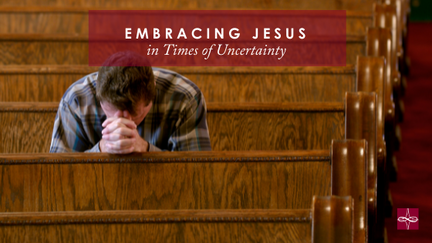
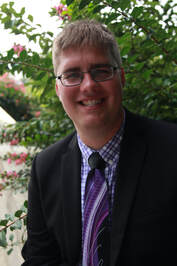
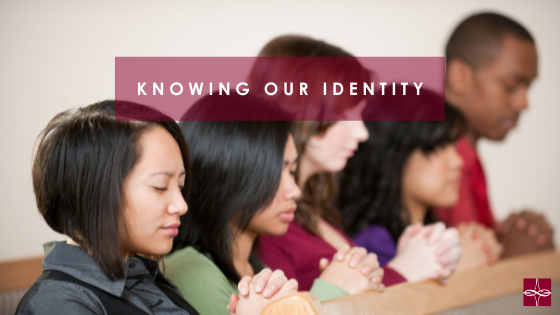

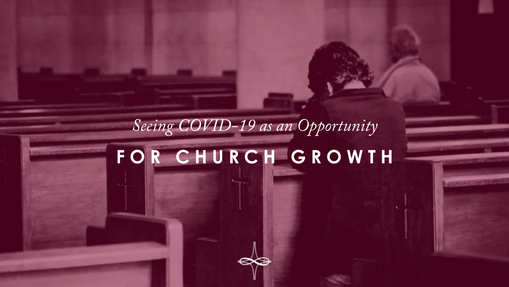
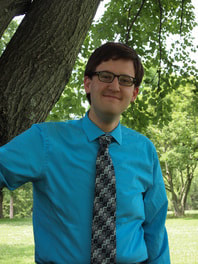
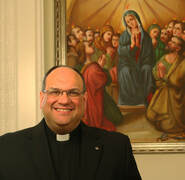
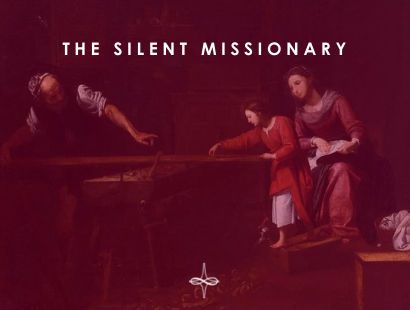

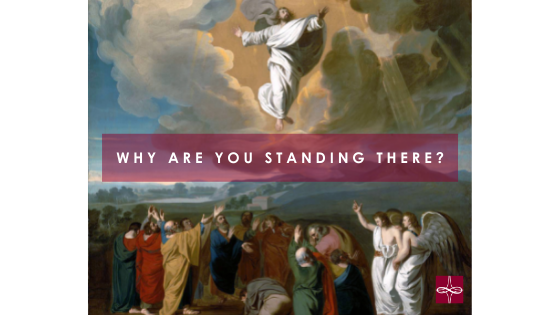

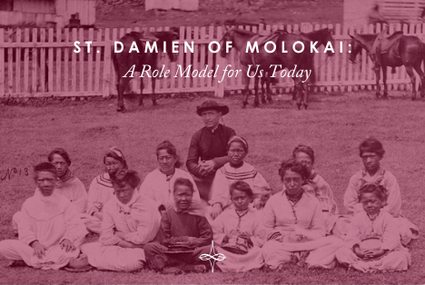
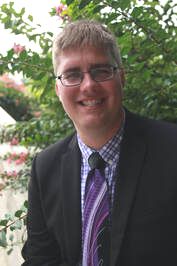
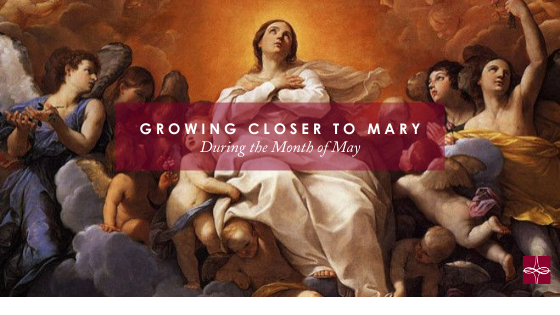

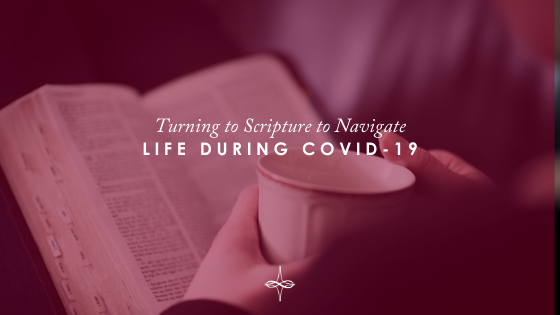

 RSS Feed
RSS Feed